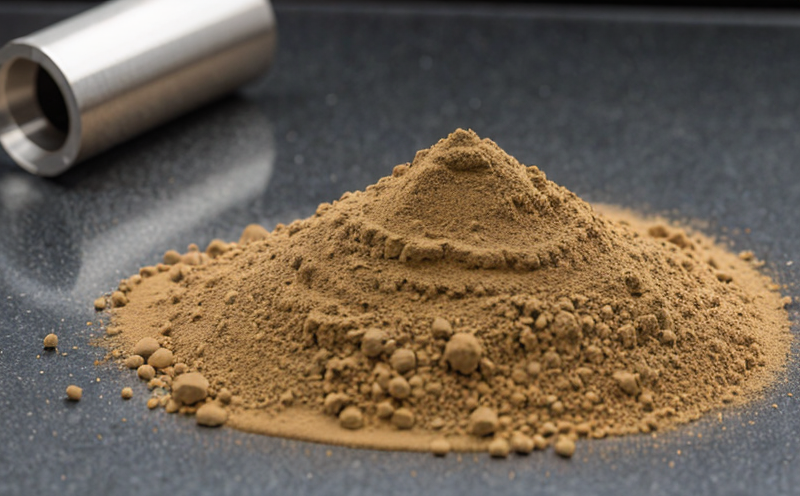ISO 6721 Dynamic Mechanical Properties Testing
The ISO 6721 standard provides a framework for determining dynamic mechanical properties of polymer materials. These tests are crucial in the Additive Manufacturing and 3D Printing sectors, particularly when evaluating raw materials such as thermoplastics used in these processes.
Dynamic mechanical analysis (DMA) measures how a material responds to oscillatory stress at various frequencies or temperatures. This testing is vital for additive manufacturing because it ensures that raw materials will perform predictably under the varying conditions encountered during 3D printing, such as heating and cooling cycles, high stresses, and rapid changes in temperature.
The test setup involves preparing a specimen according to ISO 6721 requirements. Typically, this involves cutting a sample from the raw material using precision tools that ensure consistent dimensions. The prepared samples are then placed into the DMA instrument where they undergo cyclic loading at controlled frequencies and temperatures. The response of the material is measured by recording strain as a function of frequency or temperature.
The primary goal is to determine key parameters like storage modulus (E'), loss modulus (E''), tan delta, and phase angle. These values provide insights into the viscoelastic behavior of the polymer under dynamic conditions. Understanding these properties helps in optimizing printing parameters such as print speed, layer height, and infill density for successful 3D prints.
Storage modulus reflects the elastic component of a material's response to stress, while loss modulus indicates its viscous component. The ratio E'/E'' is often used to assess the balance between elasticity and viscosity. The phase angle represents the delay in the shear stress relative to the shear strain, which can indicate whether the material behaves more like a solid or fluid.
- Storage Modulus (E'): Measures the elastic response of a material to applied forces.
- Loss Modulus (E''): Reflects the energy dissipated as heat during deformation.
- Tan Delta: A measure of the loss modulus relative to the storage modulus, useful for assessing viscoelastic behavior.
Scope and Methodology
The scope of ISO 6721 testing is broad but focuses on the dynamic mechanical properties of polymer materials. The methodology involves precise preparation of specimens, installation into a DMA device, application of cyclic loading at controlled frequencies or temperatures, and analysis of resulting strain data.
Specimens are typically cut to standard dimensions (e.g., 10mm x 5mm x 25mm) according to ISO 6721 guidelines. The testing is conducted in a controlled environment where temperature and frequency can be accurately regulated. The DMA instrument applies stress to the specimen, recording strain as it oscillates. This process yields valuable information about how the material behaves under dynamic conditions.
The results are analyzed using statistical methods to ensure reliability and consistency. Compliance with ISO standards ensures that the test data is comparable across different laboratories worldwide, which is essential for quality control in additive manufacturing processes.
Quality and Reliability Assurance
Ensuring quality in additive manufacturing requires rigorous testing of raw materials. The results from ISO 6721 dynamic mechanical properties tests are essential for this process. By confirming the correct storage modulus, loss modulus, tan delta, and phase angle, manufacturers can ensure that their products meet both industry standards and customer expectations.
Regular testing helps in identifying any changes or inconsistencies in raw material quality due to manufacturing processes or environmental factors. This proactive approach allows for timely adjustments and corrections, reducing the risk of defects in final products.
The consistency and reproducibility provided by ISO 6721 tests are vital for maintaining a high level of product reliability. Compliance with these standards ensures that materials behave predictably under various conditions, which is crucial for additive manufacturing processes that involve dynamic stress and temperature changes.
- Consistency: Ensures uniform material performance across batches.
- Reproducibility: Allows different laboratories to obtain similar results, enhancing trust in the testing process.
- Predictability: Helps manufacturers anticipate how materials will perform under real-world conditions.
Competitive Advantage and Market Impact
Implementing ISO 6721 testing in the Additive Manufacturing sector can provide significant competitive advantages. By ensuring that raw materials meet strict dynamic mechanical property standards, manufacturers can offer products with superior performance and reliability.
These tests help in optimizing additive manufacturing processes by providing precise information about how materials behave under varying conditions. This knowledge allows for more efficient and effective use of resources, leading to cost savings and increased productivity.
The ability to consistently produce high-quality products can enhance market reputation and attract new customers. Compliance with international standards like ISO 6721 also opens up access to global markets, as it ensures that products meet the stringent requirements of different regions and industries.
In conclusion, ISO 6721 dynamic mechanical properties testing is a cornerstone for ensuring quality in additive manufacturing processes. It provides essential insights into material behavior under dynamic conditions, which is critical for achieving excellence in product development and production.





